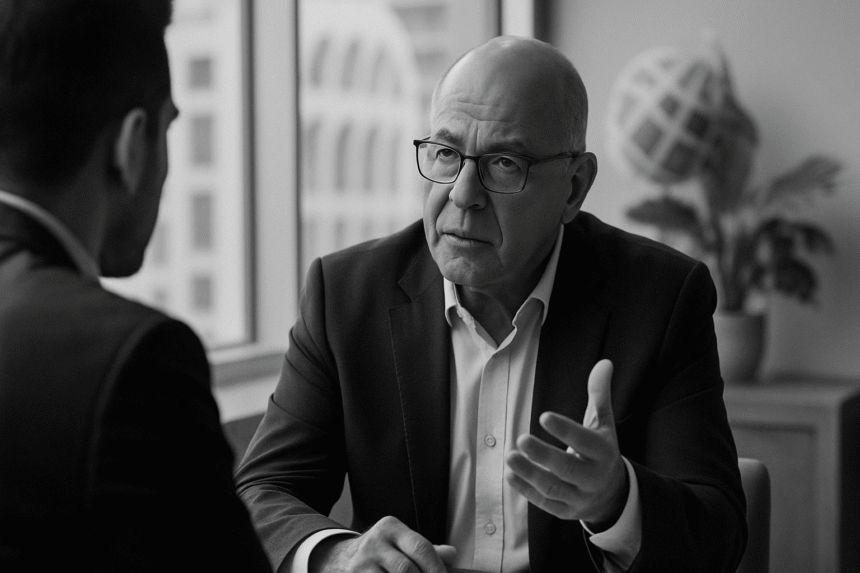When Transparency Becomes the Message: A Masterclass in Ethical Storytelling from Hisham M. El Agamy
How One Founder Turned a Single Comment Thread Into a Cross-Generational Conversation on Leadership, Legacy, and Moral Capital
Introduction
“Our generation was guided by principles… Today, we are guided by strategies.”
This powerful statement by Hisham M. El Agamy, a respected entrepreneur and advisor, lit up LinkedIn—not with controversy, but with clarity. In an era obsessed with scale, valuation, and virality, El Agamy’s words offered something rarely seen online: wisdom rooted in lived experience.
But the post didn’t just speak at people. It became a forum. Dozens of thoughtful replies turned the comment section into a digital roundtable on what truly makes a leader, with a strong focus on moral capital and its growing importance.
Background & Context
Hisham M. El Agamy, founder and long-time contributor to education and leadership development across the MENA region, shared a deeply personal reflection on the evolution of leadership values over generations.
He contrasted the leadership style of his time—grounded in ethics, trust, and long-term thinking—with the short-termism he sees dominating today’s startup and political cultures. El Agamy highlighted that moral capital has been overshadowed by the race for quick wins and immediate returns. The timing was right: geopolitical tensions, the fragility of corporate reputation, and burnout culture are all front and center in 2025.
Main Takeaways from El Agamy’s Post: The Importance of Moral Capital
-
Legacy Over Leverage
El Agamy’s core message is that moral capital—built through trust, integrity, and discipline—is a more sustainable asset than any pitch deck or marketing funnel. For El Agamy, the true value of leadership lies in the foundation of moral capital, not the leverage of financial resources.
-
Leadership Is a Chain of Trust
Several commenters echoed the idea that younger leaders must not only inherit tools—but values. The best mentorship is more than advice; it’s example. This generation of leaders needs to understand the value of moral capital in fostering long-term relationships.
-
Transparency is a Responsibility
One user remarked: “In today’s world, ethics and transparency are not just ‘nice to have’—they’re differentiators.” The post became a mirror for leaders to examine their inner compass and highlighted how moral capital is a key driver in decision-making.
-
Humility Attracts Dialogue
El Agamy didn’t preach from a pedestal. He welcomed counterpoints, praised critical thought, and even responded in Arabic to ensure accessibility. The result: respectful engagement across generations and borders, all rooted in moral capital as a guiding force.
Community Reaction to El Agamy’s Message on Moral Capital
The thread featured comments from:
-
Professors and educators
-
Senior consultants
-
Youth in business and public policy
-
Former students
They weren’t just applauding—they were building on the post with essays of their own. The post became a living document of leadership across MENA, Africa, and beyond. It was a conversation about how moral capital is the thread that ties true leadership to the needs of the future.
Our Perspective on the Role of Moral Capital in Leadership
This isn’t just an inspiring moment—it’s a blueprint for how senior leaders can use social media:
-
Not to self-promote
-
Not to polarize
-
But to mentor at scale, with moral capital at the core
For business lawyers, corporate advisors, and ethics professionals, this is a masterclass in how moral capital can become a competitive edge. In contractual negotiations, team building, and boardroom governance, what El Agamy calls “discipline and transparency” aren’t soft skills—they’re foundations for sustainable leadership.
Call to Reflection: What Will Your Leadership Be Remembered For?
If you’re a founder, investor, or team lead, consider this:
“Will your leadership be remembered for what it achieved—or for what it stood for?”
The next generation is watching—not just your success, but your decisions. Moral capital will shape how your legacy is viewed, and how sustainable your impact truly is.
Click here to visit LinkedIn Post



Leave a Reply